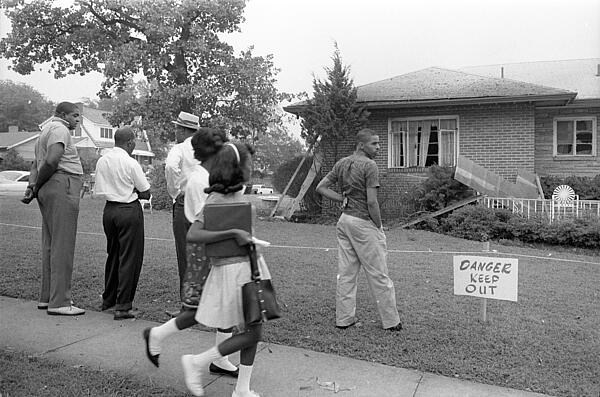1963 Birmingham Campaign
In 1963, America’s attention was focused on Birmingham, Alabama. As civil rights activities intensified, racial tensions bubbled and eventually exploded into violence and determined protests. The racism of the South was epitomised in the action of Bull Connor against the 1963 Birmingham Campaign.
Martin Luther King described Birmingham as the most racist city in America. The KKK had terrorised the African American population for decades. In recent years they had castrated a black man; pressured the city to ban a book that featured black and white rabbits; and wanted black music manned on radio stations.
The Supreme Court rulings over segregation did nothing to resolve this racism. In fact, the intensifying civil rights movement only incited more hatred and anger. Any civil rights campaign in the city was destined to provoke trouble.

King recognised this. He knew that the violence provoked by a demonstration would lead to a national outcry. At best, it would lead to federal intervention. As a result, King and the SCLC organised the 1963 Birmingham Campaign.
The Commissioner of Public Safety, Bull Connor, was notorious for his virulent opposition to civil rights. When the Freedom Riders had driven through Birmingham in 1961, Connor gave the city’s police a day off. As such, there was nobody to stop the white mob that attacked the Riders.
King coordinated a campaign in Birmingham in Spring 1963. The demonstration began on 3 April and involved a combination of lunch counter sit-ins, marches on City Hall and a boycott of downtown merchants. When more protesters were needed, SCLC organiser, James Bevel, proposed using children. From 2 May, demonstrators as young as eight were assembled into a ‘Children’s Crusade’.
Although this element of the demonstration drew criticism from some, the treatment of the protesting children by the authorities outraged the nation. In total, 500 youths were arrested and jailed.
Bull Connor set high-pressure water hoses and police dogs on the protesters. Moreover, King was arrested for defying an injunction that denied his right to march - from jail he penned “Letter From Birmingham Jail”. He was kept in solitary confinement and was refused the right to see his lawyer. He was only released with the intervention of J F Kennedy.
On 8 May, King called the demonstration to a halt. With increasing national and federal pressure, local businesses and city officials had little choice but to open negotiations.
How did Birmingham improve?
Stores were desegregated; an ongoing ‘‘program of upgrading Negro employment’’ was planned; and a biracial committee was set up to improve Birmingham’s troubled community.
On a national level, the scenes of violence outraged the nation and jolted Kennedy into action. SCLC also received far more donations owing to the publicity of its work.
However, the demonstrations triggered mass resistance in Birmingham. Following negotiations, a bomb destroyed a motel room that King had stayed at the night before. A few months later four girls were killed in a church bombing in the city.
See also: 1963 Birmingham Church Bombing
MLA Citation/Reference
"1963 Birmingham Campaign". HistoryLearning.com. 2026. Web.
